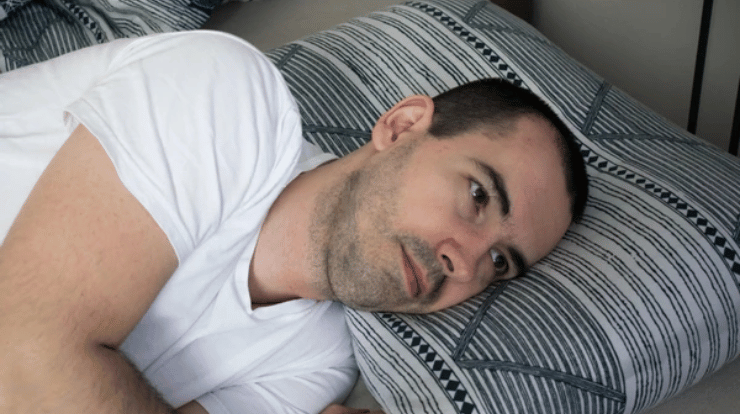
Not getting enough sleep can have serious consequences on our overall health and well-being. In fact, chronic sleep deprivation can lead to a host of physical and mental health issues, and in extreme cases, it can even be fatal. In this blog post, we will explore the dangers of sleep deprivation, including the various ways it can affect our health, and the steps we can take to ensure we are getting the rest we need to function at our best.
Can You Die From Not Sleeping?
While it is not possible to die directly from a lack of sleep, sleep deprivation can lead to serious health problems that can ultimately be fatal. Some of the ways in which sleep deprivation can increase the risk of death include:
- Heart disease: Sleep deprivation has been linked to an increased risk of heart disease. This may be due to the fact that sleep deprivation can lead to an increase in blood pressure, which is a risk factor for heart disease.
- Type 2 diabetes: Lack of sleep can disrupt the balance of hormones in the body, which can lead to an increased risk of type 2 diabetes.
- Obesity: Sleep deprivation has been linked to an increased risk of obesity. This may be due to the fact that people who are sleep deprived are more likely to eat more and make fewer healthy food choices.
- Stroke: Some studies have suggested that sleep deprivation may increase the risk of stroke.
- Mental health problems: Sleep deprivation has been linked to an increased risk of depression, anxiety, and other mental health problems.
It is important to get enough sleep to maintain good physical and mental health. While you cannot die directly from not sleeping, the consequences of sleep deprivation can be severe and potentially life-threatening.
How long can u go without sleep before you die?
It is not possible to determine exactly how long a person can go without sleep before dying, as this can vary depending on a number of factors, such as age, overall health, and the individual’s ability to cope with sleep deprivation. In general, however, most people will begin to experience negative effects on their physical and mental health after going without sleep for around 24 hours.
After this point, the effects of sleep deprivation can become more severe and can include:
- Difficulty thinking and making decisions
- Mood changes and irritability
- Decreased ability to concentrate
- Increased risk of accidents and injuries
- Hallucinations
- Delirium
In extreme cases, sleep deprivation can lead to coma and death. However, it is important to note that these extreme cases are rare and typically only occur in people with underlying health problems or those who are subjected to extreme sleep deprivation as a form of torture. In most cases, people will begin to feel the effects of sleep deprivation before it becomes life-threatening.
How long can you go without sleep before hallucinating?
Hallucinations are a symptom of severe sleep deprivation. The amount of time it takes for a person to start hallucinating will vary depending on the individual and their tolerance for sleep deprivation. Some people may begin to experience hallucinations after going without sleep for as little as 24-48 hours, while others may not experience hallucinations until they have been awake for several days.
It is also important to note that sleep deprivation can cause other mental and physical symptoms before hallucinations occur. These can include difficulty thinking and making decisions, mood changes and irritability, decreased ability to concentrate, and an increased risk of accidents and injuries.
It is generally recommended to get at least 7-9 hours of sleep per night to maintain good physical and mental health. Prolonged sleep deprivation can lead to serious health problems and should be avoided. If you are experiencing hallucinations or other symptoms of sleep deprivation, it is important to seek medical attention as soon as possible.

Can you die from sleeping too much?
Sleeping too much, or hypersomnia is a condition characterized by excessive sleepiness and the need for prolonged periods of sleep. While sleeping too much is not typically life-threatening, it can have serious consequences for your physical and mental health.
Some of the potential negative effects of sleeping too much include:
- Increased risk of obesity: People who sleep excessively may be more likely to gain weight, as they may be less active and more likely to eat unhealthy foods.
- Increased risk of type 2 diabetes: Some studies have suggested that people who sleep too much may be at an increased risk of developing type 2 diabetes.
- Increased risk of heart disease: Excessive sleep has been linked to an increased risk of heart disease.
- Decreased productivity: Sleeping too much can disrupt your daily routine and make it difficult to get things done.
- Decreased mental alertness: Excessive sleep can lead to a decrease in mental alertness and an increase in fatigue.
It is generally recommended to get 7-9 hours of sleep per night to maintain good physical and mental health. While sleeping too much is not typically life-threatening, it can have negative consequences for your health and overall well-being. If you are experiencing excessive sleepiness or other symptoms of hypersomnia, it is important to speak with a healthcare provider for further evaluation and treatment.
Can you go into a coma from lack of sleep?
It is possible to go into a coma as a result of sleep deprivation, although this is rare and typically only occurs in people with underlying health problems or those who are subjected to extreme sleep deprivation as a form of torture.
Coma is a state of unconsciousness in which a person is unresponsive to their environment and unable to communicate. It can be caused by a variety of factors, including brain injury, stroke, infections, and drug or alcohol overdose. In rare cases, extreme sleep deprivation can also cause coma.
While sleep deprivation alone is not typically enough to cause a coma, the physical and mental effects of sleep deprivation can increase the risk of coma in people with underlying health problems or those who are subjected to extreme sleep deprivation.
Can you die in your sleep from lack of oxygen?
Yes, it is possible to die in your sleep from a lack of oxygen. This can occur due to a number of different factors, including:
Sleep apnea: Sleep apnea is a condition that causes interruptions in breathing during sleep. It can be caused by a number of factors, including obesity, aging, and genetics. If left untreated, sleep apnea can lead to a lack of oxygen in the blood, which can be life-threatening.
Suffocation: If a person is sleeping in an environment that is not properly ventilated or if they are sleeping with their face pressed against an object that blocks their airway, they may not be able to get enough oxygen, which can lead to suffocation.
Carbon monoxide poisoning: Carbon monoxide is a colorless, odorless gas that can be produced by burning fuel. If a person is exposed to high levels of carbon monoxide while sleeping, it can cause a lack of oxygen in the blood, which can be deadly.
It is important to take steps to ensure that you are getting enough oxygen while you sleep, such as sleeping in a well-ventilated room and avoiding sleeping on your stomach with your face pressed against a pillow. If you have sleep apnea or other conditions that may disrupt your breathing during sleep, it is important to speak with a healthcare provider for further evaluation and treatment.






